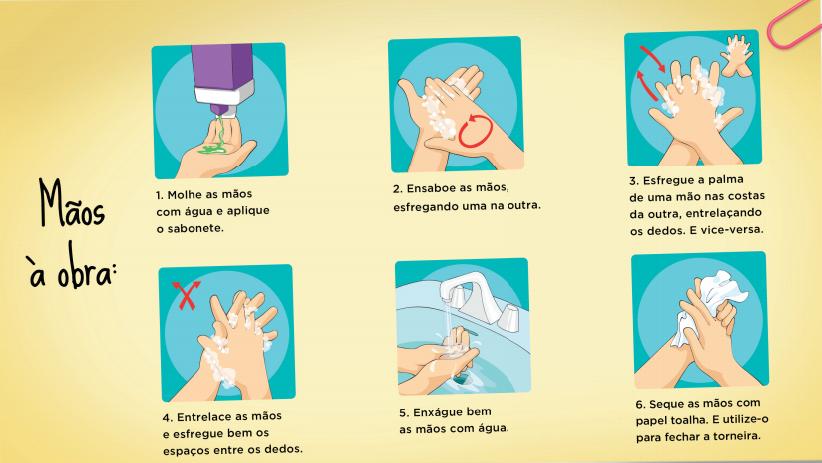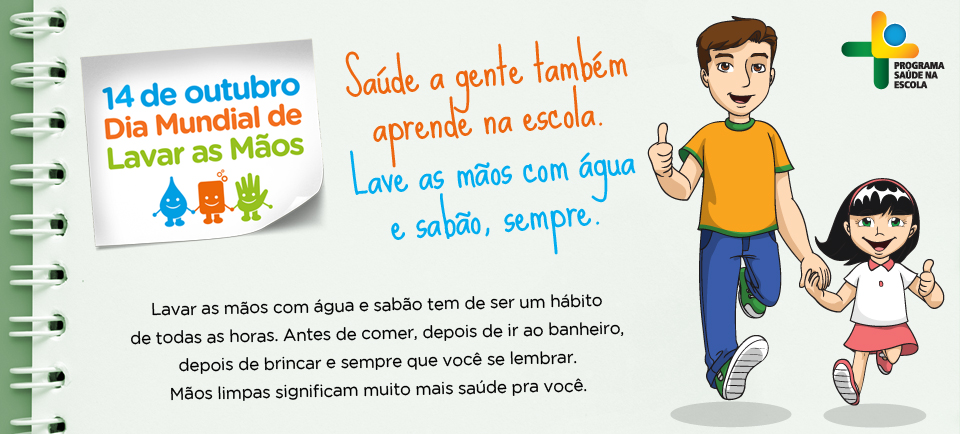 October 14th was World Hand Washing Day. The Ministry of Health launched the campaign: “We also learn about health at school. Wash your hands with soap and water” in partnership with the Pan American Health Organization (PAHO). This day had the challenge of mobilizing and raising awareness among parents and children of the importance of washing their hands before meals and after going to the bathroom.
October 14th was World Hand Washing Day. The Ministry of Health launched the campaign: “We also learn about health at school. Wash your hands with soap and water” in partnership with the Pan American Health Organization (PAHO). This day had the challenge of mobilizing and raising awareness among parents and children of the importance of washing their hands before meals and after going to the bathroom.
Keeping your hands clean is one of the simplest and most efficient ways to avoid infectious diseases transmitted by bacteria, viruses, or fungi. Two surveys carried out by an antibacterial soap brand showed that although the majority of mothers (84%) said they washed their hands with soap after going to the bathroom, 69% of the children had fecal coliforms on their hands. Among the bacteria found are Enterococcus and Escherichia Coli. Enterococcus, a bacteria transmitted through food or water that can cause urinary infections and even meningitis, was detected in 59% of the cases. And Escherichia Coli, which has the human intestine as its natural habitat and causes food poisoning and gastroenteritis (the symptoms of which are diarrhea, vomiting and cramps), was present in 13% of the samples.
According to 2009 data from Unicef, 3.5 million children under the age of 5 die annually because of illnesses related to diarrhea and acute respiratory infections, which can be prevented by hand hygiene.
The Ministry of Health provided a website on how to wash your hands, and also produced educational posters teaching the basic steps to wash your hands correctly:
According to guidance from the World Health Organization (WHO), hand washing should last 40 to 60 seconds.
Source:
http://portal.saude.gov.br/portal/arquivos/flash/lavarasmaos.html



